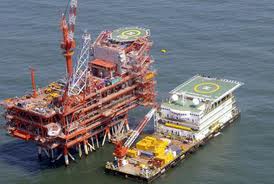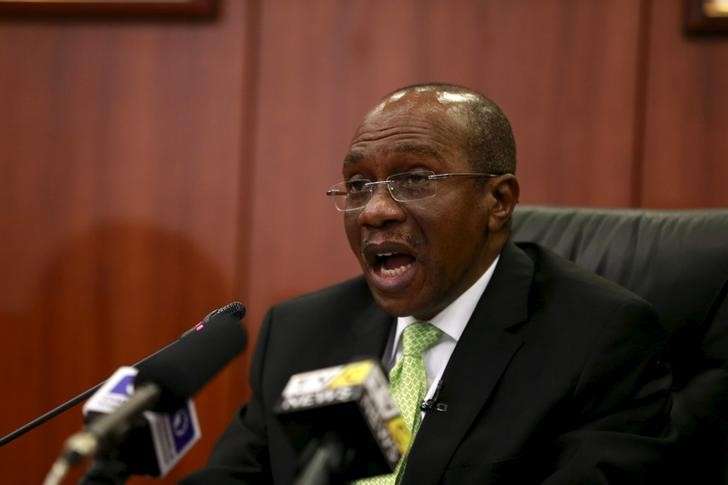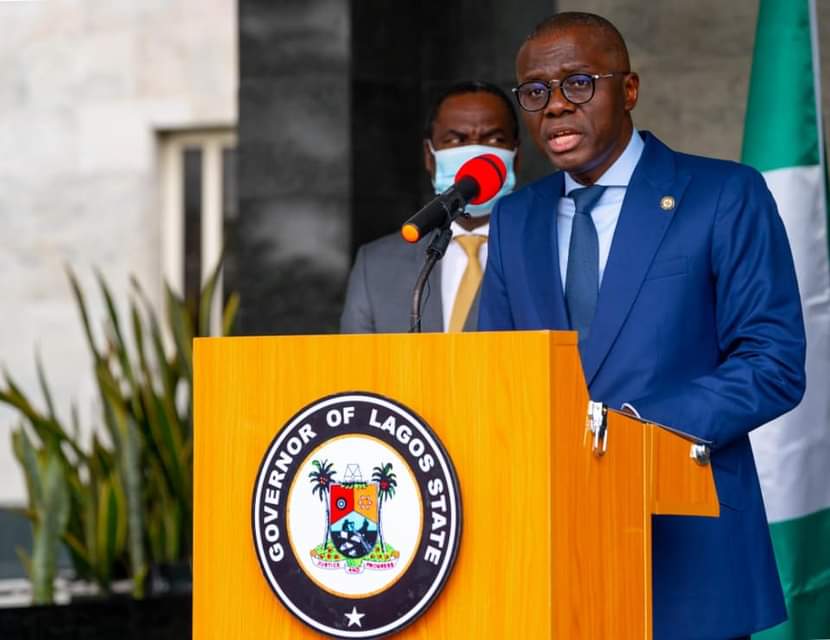Oil
Shell Nigeria postpones two oil projects valued at $30bn
…..Mobil demands competitive fiscal terms
ABUJA – As the logjam over the Petroleum Industry Bill, PIB, persists Shell threw a bombshell Wednesday when it announced it has postponed two major projects in in Nigeria worth $30 billion due to the delay in to the delay in passage of the reform bill.
 Mutiu Sunmonu, Managing Director of Shell Petroleum Development Company said Nigeria needed to develop two deepwater fields every year, at a cost of $30 billion, to maintain a steady production at 3 million b/d, but added, that this had been blocked by the uncertainty surrounding passage of the bill.
Mutiu Sunmonu, Managing Director of Shell Petroleum Development Company said Nigeria needed to develop two deepwater fields every year, at a cost of $30 billion, to maintain a steady production at 3 million b/d, but added, that this had been blocked by the uncertainty surrounding passage of the bill.
“Onshore production is plagued by serious financing problems. We have two big projects costing $30 billion we would like to do. But we are waiting for the Petroleum Industry Bill to allow us to make such investment,” he said.
Sunmonu also said production from the onshore fields was nowhere near full capacity with sabotage, attacks and crude oil theft, causing many outages.
Managing Director of Mobil Producing Nigeria Unlimited, Mark Ward also said at the conference that Nigeria must ensure its tax and fiscal packages offered fair returns on investments.
“Nigeria needs to be competitive in terms of returns on investment. We invest, we expect returns based on the contract in place,” Ward said.
The PIB designed to cover everything from fiscal terms for offshore projects to the reform of the state oil company, has been on the legislative cards for over three years, but has yet to be passed into law.
Meanwhile, the Federal Government plans to hold talks with foreign oil partners in coming weeks, over a lull in crude oil exploration where the country’s production and reserves stagnated over the last six years.
Group Executive Director in charge of exploration and production at the NNPC, Abiye Membre said at the conference that the lack of exploration activities in the past few years is a major concern to the government.
“We plan to hold talks with our joint venture partners in coming weeks on the need for more concerted efforts on drilling programs,” Membre said.
Abiye said Nigeria’s oil production hovered between 2.4 million and 2.5 million b/d, the level it was pre-militancy period in 2006, although the country has capacity to produce up to 3 million b/d, while reserves had remained at 35 billion barrels during same period.
Oil
NNPC Targets 60% Methane Emission Reduction By 2031
The Nigerian National Petroleum Company Limited (NNPC) has unveiled a bold strategy to reduce methane emissions in the oil and gas sector by 60% by 2031, with an ultimate goal of achieving net-zero emissions by 2060.
This announcement reinforces Nigeria’s leadership role under the Global Methane Pledge initiative and its commitment to tackling climate change.
The Group Chief Executive Officer of NNPC, Mele Kyari, disclosed these plans during a meeting on Thursday with Robert Leahman, the U.S. State Department’s Global Methane Program Manager, and a delegation from Deloitte.
READ MORE: Atiku Gloats Over AUN’s Achievements Ahead Of 20th Anniversary
The discussions, held at the NNPC Towers in Abuja, focused on collaborative efforts to reduce methane emissions through innovative and sustainable practices.
“Reducing methane emissions is not just an environmental necessity but also a strategic imperative for Nigeria’s energy transition. We are leveraging partnerships to adopt global best practices and innovative solutions,” Kyari stated.
Key among these efforts is a pilot project in the Niger Delta, aimed at establishing emissions baselines, mitigating methane leaks, and promoting sustainable operations across Nigeria’s energy sector.
The project, a partnership between NNPC, Deloitte, and the U.S. Bureau of Energy Resources, will utilize data-driven methodologies to pinpoint and address methane hotspots.
Robert Leahman commended Nigeria’s proactive stance, describing it as a benchmark for other nations on the continent.
“Nigeria’s leadership under the Global Methane Pledge sets a standard for the continent. These initiatives will not only help reduce emissions but also drive sustainable development in the energy sector,” he said.
Kyari highlighted the broader benefits of addressing methane emissions, noting its significance for both environmental protection and economic efficiency.
“This collaboration is a game-changer. By addressing methane leaks, we’re reducing waste, saving costs, and protecting the environment. It’s a win-win for our economy and the planet,” he added.
Oil
FG Introduces New Incentives To Revitalize Nigeria’s Oil & Gas Industry
In a strategic move to revitalize Nigeria’s oil and gas sector, the Federal Government has unveiled two key fiscal incentives aimed at attracting investment and enhancing energy security.
The announcement was made by Mr. Wale Edun, the Minister of Finance and Coordinating Minister of the Economy on Wednesday.
The first initiative, the Value Added Tax (VAT) Modification Order 2024, introduces critical exemptions for essential energy products and infrastructure, including Diesel, Feed Gas, Liquefied Petroleum Gas (LPG), Compressed Natural Gas (CNG), Electric Vehicles, Liquefied Natural Gas (LNG) infrastructure, and Clean Cooking Equipment.
Read Also: Atiku Calls For Rotational Presidency Across Nigeria’s Geopolitical Zones
These exemptions are designed to reduce living costs for Nigerians, promote energy security, and accelerate the transition to cleaner energy alternatives.
The second initiative, the Notice of Tax Incentives for Deep Offshore Oil & Gas Production, offers new tax relief options for deep offshore exploration projects.
This measure aims to position Nigeria’s deep offshore basin as a premier destination for international oil and gas investments, boosting the country’s appeal to foreign investors.
These reforms are part of a broader set of policy initiatives, known as Policy Directives 40-42, endorsed by President Bola Ahmed Tinubu.
The directives reflect the administration’s commitment to fostering sustainable development in the energy sector and enhancing Nigeria’s competitive edge in the global oil and gas market.
Business
Tinubu set to approve ExxonMobil-Seplat oil deal, expands CNG bus initiative

By Yemie Adeoye
NIGERIA’s President Bola Tinubu has announced that the protracted ExxonMobil-Seplat upstream oil divestment will be formally approved by the Minister of petroleum within a matter of days, just as he announced his government’s intention to expand the Compress natural Gas, CNG buses initiative.
The President who stated this during his Independence day nationwide broadcast stated that the move is in line with his administration’s commitment to free enterprise, free entry and free exit in investments which is the hallmark of his administration investment policy.
“Fellow compatriots, our administration is committed to free enterprise, free entry, and free exit in investments while maintaining the sanctity and efficacy of our regulatory processes. This principle guides the divestment transactions in our upstream petroleum sector, where we are committed to changing the fortune positively. As such, the ExxonMobil Seplat divestment will receive ministerial approval in a matter of days, having been concluded by the regulator, NUPRC, in line with the Petroleum Industry Act, PIA. This was done in the same manner as other qualified divestments approved in the sector.”
The President also seized the opportunity to plead with Nigerians to be patient with his administration’s reform policies. “As your President, I assure you that we are committed to finding sustainable solutions to alleviate the suffering of our citizens. Once again, I plead for your patience as the reforms we are implementing show positive signs, and we are beginning to see light at the end of the tunnel”.
“Our energy transition programme is on course. We are expanding the adoption of the Presidential Initiative on Compressed Natural Gas for mass transit with private sector players. The Federal Government is ready to assist the thirty-six States and FCT in acquiring CNG buses for cheaper public transportation.
Fellow Nigerians, while we are working to stabilise the economy and secure the country, we also seek to foster national unity and build social harmony and cohesion. Our economy can only thrive when there is peace”. he enthused.















